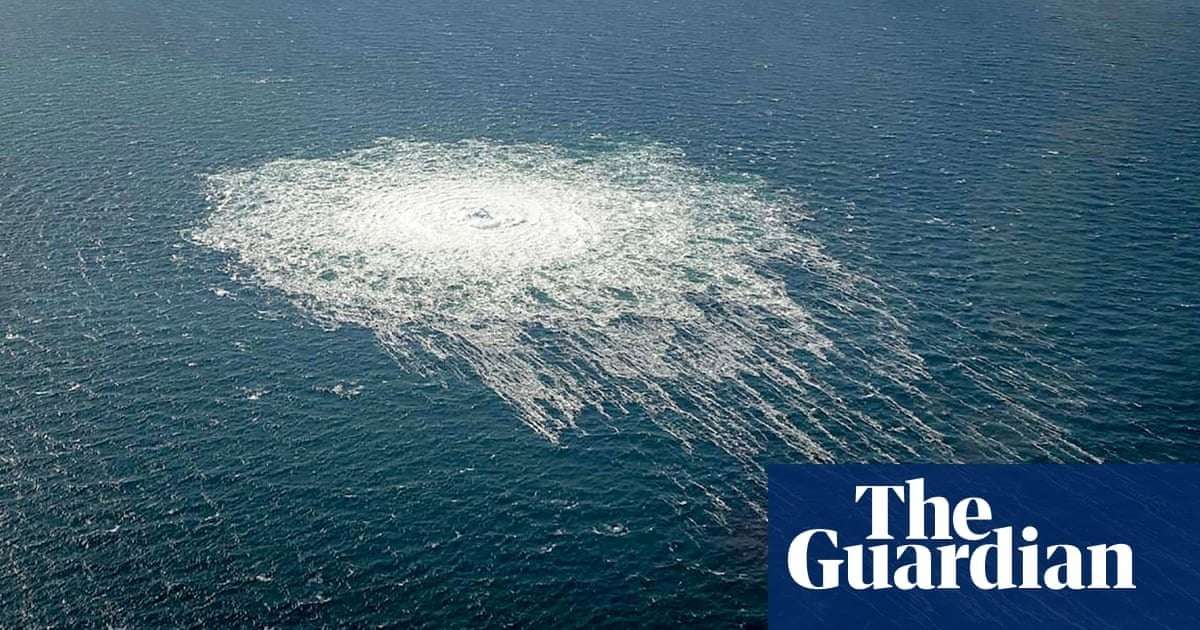Denmark has dropped its investigation into the 2022 explosions on the Nord Stream pipelines carrying Russian gas to Germany, becoming the second country to do so after Sweden closed a separate inquiry.
The multibillion-dollar Nord Stream 1 and 2 pipelines transporting gas under the Baltic Sea were ruptured by a series of blasts in the Swedish and Danish economic zones in September 2022, releasing vast amounts of methane into the air.
Russia and the west, at loggerheads over Moscow’s invasion of Ukraine in February that year, have pointed fingers at one another. Each has denied involvement and no one has taken responsibility.
“There is not sufficient grounds to pursue a criminal case in Denmark … and therefore the Copenhagen police has decided to conclude the criminal investigation of the explosions,” Denmark’s police said in a statement.
Denmark’s investigation was one of three into the explosions.
Sweden dropped its investigation into the explosions this month, saying it lacked jurisdiction in the case but had handed evidence to German investigators, who are yet to publish any findings.
The German federal prosecutor’s office said on Monday that its investigation was continuing and it would not provide further information.
Russia said Denmark’s decision was “close to absurdity”. The Kremlin spokesperson, Dmitry Peskov, said Copenhagen recognised the blasts had been an act of premeditated sabotage but had decided not to go further with the investigation because the case, he claimed, involved Denmark’s close allies.
The source of the explosions has been a an international mystery. The blasts happened as Europe attempted to wean itself off Russian energy sources after the Kremlin’s full-scale invasion of Ukraine, and contributed to tensions that followed the start of the war.
00:00:33 Nord Stream pipeline damage captured in underwater footage – video
The undersea explosions ruptured the Nord Stream 1 pipeline, which was Russia’s main natural gas supply route to Germany until Russia cut off supplies at the end of August 2022.
They also damaged Nord Stream 2, which never entered service because Germany suspended its certification process shortly before Russia invaded Ukraine in February of that year.
The explosions took place about 80 metres (260ft) underwater on the ocean floor. Seismic measurements indicated they occurred shortly before the leaks were discovered.
There remains no accepted explanation. A series of unconfirmed reports variously accusing Russia, the US and Ukraine are filling an information vacuum as investigations continue.
Russia has accused the US of staging the explosions, which Moscow described as a terror attack. The US has denied involvement.
The pipelines were long a target of criticism by the US and some of its allies, who warned they posed a risk to Europe’s energy security by increasing dependence on Russian gas.
In March 2023, German media reported that a pro-Ukraine group was involved in the sabotage using a vessel that set off from the German port of Rostock. Ukraine rejected suggestions it could have ordered the attack and German officials voiced caution over the accusation.
Swedish prosecutors earlier hinted that the identity of the perpetrator was likely to remain unclear.
Beyond their geopolitical impact, the Nord Stream leaks were a huge environmental disaster with local wildlife affected and huge volumes of methane discharged into the Baltic Sea in what analysts believe could be the single largest release of methane due to human activity.
Reuters and the Associated Press contributed to this report
